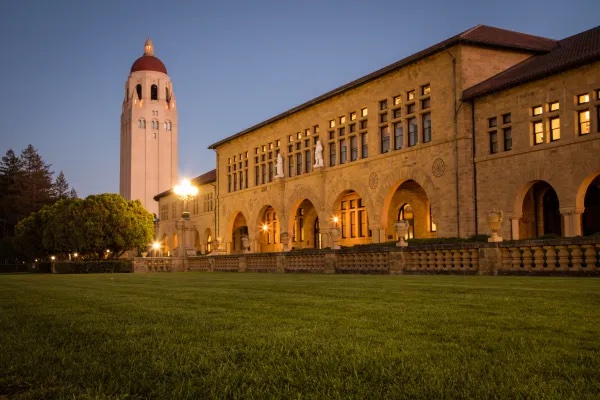As Stanford students settle back into campus this winter, many laid out a blueprint for how to approach the new year. A month in, four students reflect on their New Year’s resolutions.
Edie Quinn ’27
For Quinn, the priority this coming year is to focus on her physical health and, by extension, her overall well-being. Because she is already passionate about running, her New Year’s resolution is to run more.
“On days that I run, I feel happier,” Quinn said. “Sometimes sleep and studying triumph over it, but I made a schedule to run on Monday, Wednesday or Friday mornings.”
Quinn emphasized the importance of accountability and community in keeping up with her goals: Sharing her resolutions with others has gone a long way toward keeping her accountable.
Even if she does not stick to her resolution the entire year, she said, she hopes it will at least have a positive “short-term impact.”
“Most people just stick to their New Year’s resolution for a month and then drop it [after] a month,” Quinn said. “At least you are trying to reach a goal of yours, [even if it] is not for the full year.”
Sai Konkimalla ’27
Konkimalla does not typically make New Year’s resolutions, but that will change this year — he is hoping to use his New Year’s resolution as a way to evaluate his first year at college.
His resolution is not an uncommon one: fixing his sleep schedule.
“I pulled too many all-nighters last quarter, more than I can count,” Konkimalla said. “I want to build healthier habits for next year: ‘New year, new me.’”
He’s not yet sure how exactly to go about achieving this goal, but he believes that having his friends sleeping earlier instead of hanging out at 2 a.m. will have a positive impact.
“Not cramming at the last minute will help too,” he said.
Diba Dindoust ’27
Dindoust took a unique approach to her New Year’s resolution.
“I like to use words to describe what I want my next year to be like, so I have three words: curiosity, forgiveness and enjoyment,” she said.
Dindoust said she reflected on her past year for inspiration in coming up with the three words to embody her New Year’s resolutions. The past year, she said she had been “slacking off” on her goals. This year, she hopes to put her best foot forward and prioritize curiosity.
“I think the best way to lean into that is to maintain curiosity and to go forward with that mindset,” Dindoust said. “Previously, I was interested in male birth control, but it was very niche and I didn’t want to dedicate my life to just that, so I want to explore something new … like organoids.”
Dindoust noted that learning how to forgive oneself is important to fostering a healthy mental state. She said she plans to incorporate a new gym routine into her life this year.
“I don’t want to spend the whole day pondering what happened, criticizing myself for it — it’s a bad habit,” Dindoust said. “Forgiveness goes hand-in-hand with enjoyment because I don’t want life to be super serious.”
Akary Buenrostro ’26
For Buenrostro, the process of self-forgiveness is rooted in self-deception. Echoing Dindoust, she emphasized the importance of letting go of her past mistakes, even if she does not truly believe that she deserves to forgive herself.
“My advice? Lie,” Buenrostro said. “I’m serious. If you see extending grace to yourself as a lie, then lie. Whatever your goal was this year, just change your perspective if you falter in reaching it.”
She is planning on wearing platform shoes to make herself taller this year.
Learning how to deal with one’s mistakes in a healthy manner, Buenrostro said, is essential to staying consistent with one’s New Year’s resolutions.
“Why let one slip-up affect your whole year?” she said. “Make that New Year’s resolution an everyday resolution. If you fail once, then you only falter on one random Tuesday, not your whole year.”
